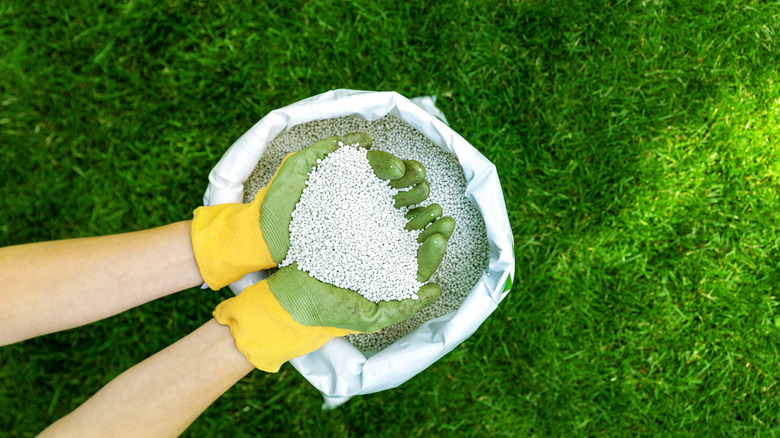As a homeowner and aspiring gardener, the first thing you probably saw on the Internet during your research is how important nitrogen is when it comes to taking care of your yard. Nitrogen is an element and is responsible for a lot of biochemical reactions in plants. Because grass takes up nutrients through its roots, you have to make sure that there is enough nitrogen available in the soil. However, too much of a good thing can sometimes be a bad thing, such as using a nitrogen fertilizer at the wrong time. A common mistake some people make when fertilizing their yard is not knowing the proper time to add nitrogen to the soil. It all depends on what varieties of grass you have in your lawn and what season they are.
Nitrogen is what makes up amino acids, proteins, and enzymes, all of which are essential in plants. Without nitrogen, your grass wouldn’t be able to photosynthesize because the element also constitutes chlorophyll. Nitrogen is without a doubt one of the most crucial nutrients for your lawn, but there is still a wrong time to use fertilizer containing it if your grass is out of its season. It could even cause weeds to sprout all over your lawn. Fortunately, you can determine if your grass could use an extra nitro boost or if you can skip out on it for the season.
Only apply nitrogen fertilizer during your grass’s active growing season

You may find it hard to believe that too much nitrogen fertilizer in the soil could ever be a bad thing, but it can have negative repercussions on your lawn. Ideally, you should only be fertilizing your lawn twice a year. According to research conducted by the Wayne County Extension, you should apply nitrogen fertilizer to your grass only when the grass is in its growing season. Some varieties, such as the Kentucky bluegrass, are cool-season grasses which means they grow best in the colder months. This means they should be fertilized in the early spring and fall since these are the times they exhibit prime growth. Meanwhile, Bermudagrass is perfect grass for people who live in hot climates because it’s a warm-season type that grows best in the late spring and summer. That is when you should apply fertilizer before the weather gets unbearably cold.
Because nitrogen is responsible for the greenery in plants and new growth, if you apply it out of season, it will encourage the grass to grow in unsuitable weather conditions. If you fertilize when the grasses aren’t growing, the fertilizer will be feeding the weeds instead, encouraging their growth. If you mistakenly fertilize at the wrong time, you might not like what your yard will look like by the next growing season.